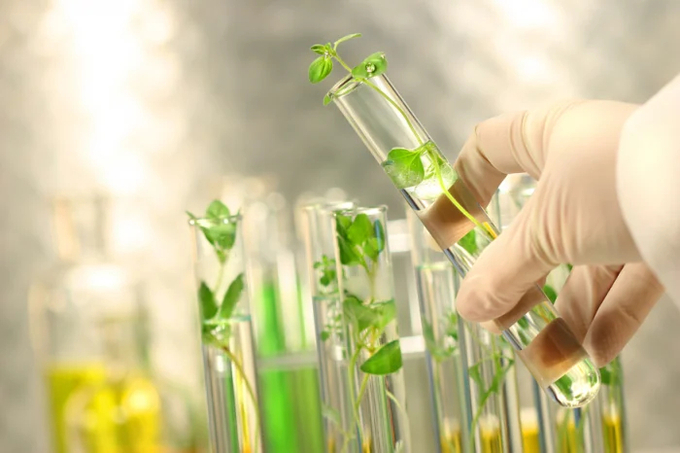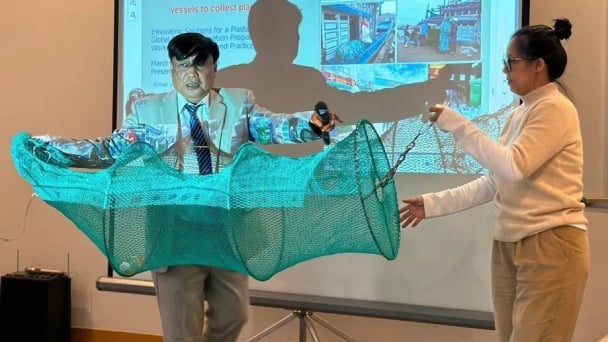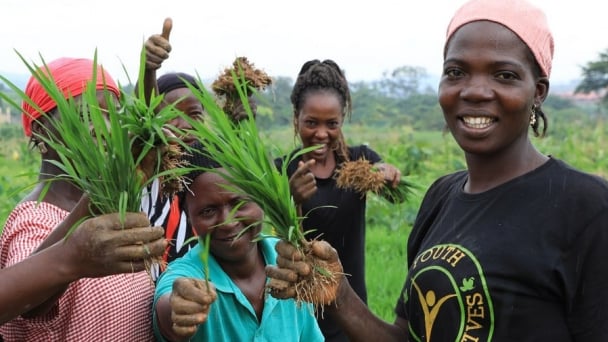May 16, 2025 | 00:54 GMT +7
May 16, 2025 | 00:54 GMT +7
Hotline: 0913.378.918
May 16, 2025 | 00:54 GMT +7
Hotline: 0913.378.918
The overarching goal of the project is to foster the development of biotechnology in the field of environmental protection in a sustainable and eco-friendly direction. This includes efforts to control and improve environmental quality, as well as to utilize natural resources efficiently. Additionally, the project aims to strengthen the research and development capabilities, the application, and the mastery of biotechnological innovations within the environmental protection sector, both at the regional and global levels.

The project on the development of biotechnology in the field of environmental protection until 2030 aims to control and improve environmental quality while ensuring the efficient use of natural resources.
Develop science and technology to support the biotechnology industry in environmental protection.
Strengthen capabilities to promote the development of biotechnology and encourage its application in the field of environmental protection.
Create and refine a legal framework, mechanisms, and policies to support the development of the biotechnology industry in environmental protection.
Foster international cooperation in the biotechnology sector for environmental protection.
Implement communication strategies to raise awareness about the role of biotechnology in environmental protection.
The project also outlines specific goals, such as conducting research and developing biotechnological solutions for environmental protection. It aims to master core and advanced biotechnologies, which will be used to create waste treatment products for industries such as agriculture, forestry, aquaculture, medical waste treatment, and household waste management.
Additionally, the project sets a target to establish and develop at least 10% of enterprises engaged in industrial-scale production of biological products used for waste treatment and the manufacturing of biological products aimed at protecting the environment.
There will also be investments made to develop human resources and the necessary laboratory facilities to support the biotechnology sector's growth in environmental protection. Special focus will be placed on developing biological products designed for efficient waste treatment.
One of the key goals of the project is to finalize the national legal framework and establish a centralized national database that will support the development of biotechnology and related industries in environmental protection.
In the science and technology development area, the project prioritizes the research and application of biotechnology and waste treatment technologies for sectors such as agriculture, forestry, aquaculture, medical waste management and industrial waste treatment. It will place special emphasis on energy recovery technologies and the recycling of waste materials. The goal is to adopt and adapt advanced biotechnology systems and equipment from countries with leading biotechnology industries. The country will scale up biotechnological solutions for environmental protection at an industrial level.
Furthermore, the project aims to develop local enterprises that are capable of producing competitive biological products for environmental management, with a specific focus on waste recycling. This includes fostering local businesses to adopt, master and spread modern biotechnological practices from advanced countries. These solutions must be effectively applied under the specific conditions of Vietnam.
Translated by Phuong Linh

(VAN) Data from 10,000 farming households will help professionalize production organization and support the implementation of the One Million Hectares Program for High-Quality, Low-Emission Rice Cultivation.

(VAN) FAO Director-General QU Dongyu marks International Day of Plant Health at NENA conference.

(VAN) Deputy Minister of Agriculture and Environment Hoang Trung affirmed that floriculture and ornamental plants are a growing industry that receives significant global attention.

(VAN) The three staple crops dominating modern diets – corn, rice and wheat – are familiar to Americans. However, fourth place is held by a dark horse: cassava.
/2025/05/10/4037-3-223011_495.jpg)
(VAN) Remote sensing technology is becoming an indispensable tool in monitoring resources, developing modern agriculture, and protecting the environment in Vietnam.

(VAN) The trash bag used on fishing vessels can withstand rough sea conditions, including level 8 to level 10 winds and waves. Notably, it can be hung anywhere on the boat.

(VAN) African leaders launched the Kampala Declaration on Building Resilient and Sustainable Agrifood Systems in Africa, marking a bold step toward transforming the continent's agriculture.